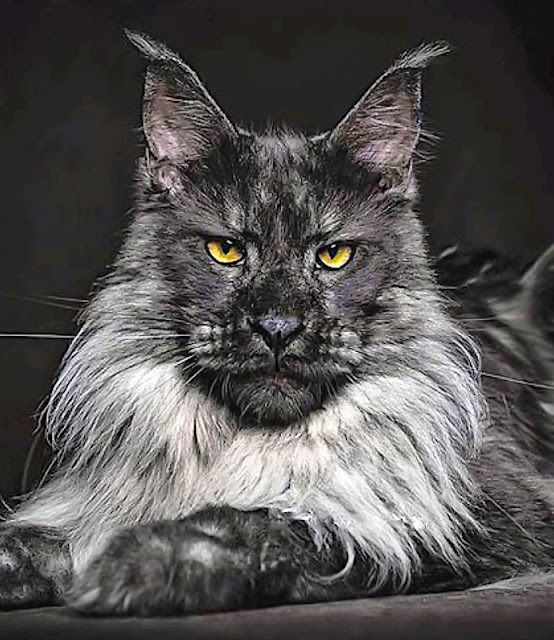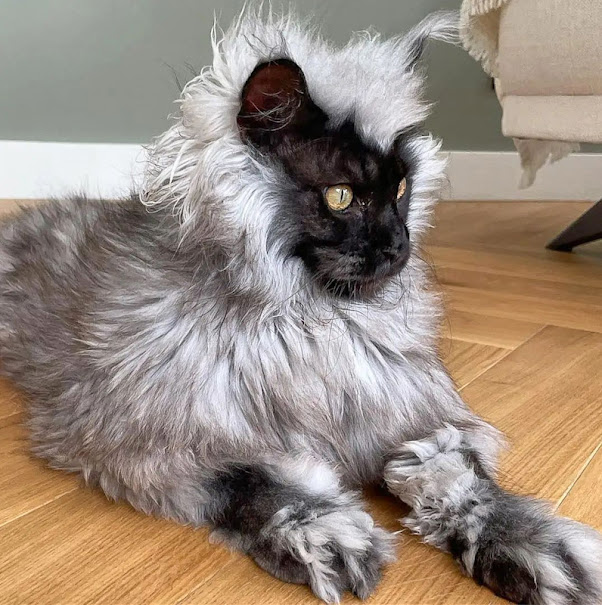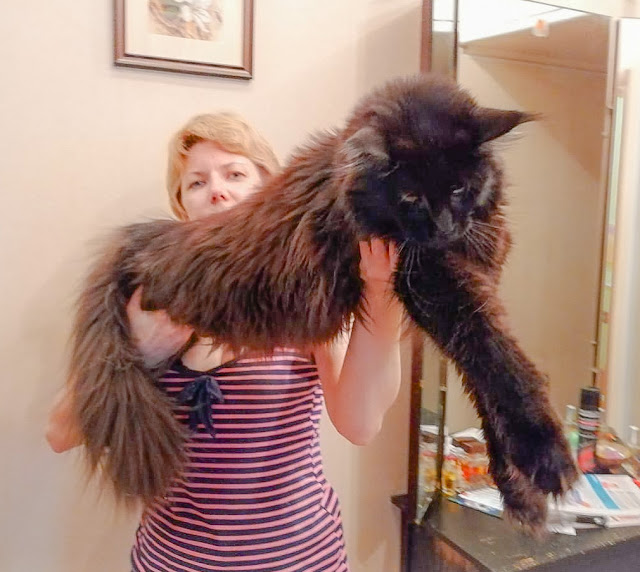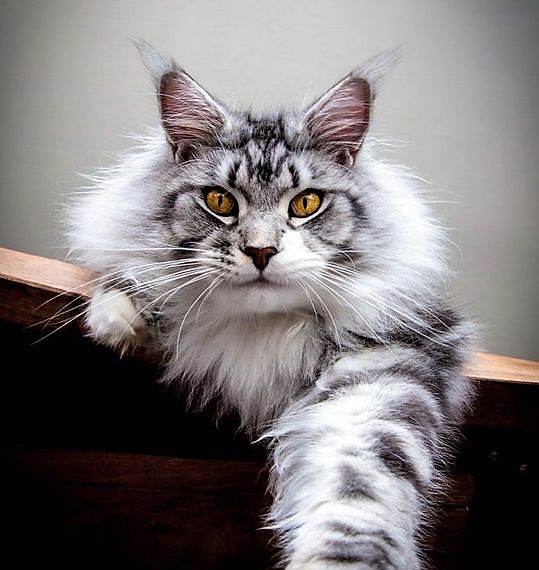Maine Coon copies owner's English phrase "How are you?"
 |
| Screenshot from video below. |
This is a classic case of a domestic cat, in this instance a beautiful Maine Coon, copying the sounds of their human caregiver to their advantage. It seems that the cat is speaking English but for the cat it is simply mimicking the sound made by his owner but with a purpose. As people like to hear cats speaking English, the video has garnered a lot of viewings.
All domestic cats are good at observing their owners and copying if it is beneficial to them. This normally means activities such as opening doors or making a sound that triggers the correct response from their owner.
The evolved meow/baby cry that some domestic cats have mastered is another good example. Some cats understand that when babies cry for their mother there is an instant response. Very effective, they think, why not use it to my advantage! They modified their meow to add a hint of baby cry.
And the same is more or less happening here. The Maine Coon has learned that he/she is more likely to receive the food he so urgently needs and likes if he makes the same sound as his female human caregiver.
This sort of feline behaviour is the result of thousands of years of domestication which only really took place with the ancient Egyptians although the first domestic or semi-domestic cats (tamed North African wildcats) occurred around 10k years ago in the Middle East.
This is all about what experts call 'observational learning'. The classic example is a kitten learning to hunt by observing their mother hunt or kill the prey animal when she brings it back to the den.
It is why I believe that domestic cats regard their human caregiver as a mother cat albeit unusually large and strange looking! Humans keep their cats in a suspended state of perpetual kittenhood. Adult domestic cats have the mentality of kittens until they go outside and hunt when they become one of the world's best and most effective predators.
A little bit more about observational (social) learning
I guess we can take a common-sense view. Your cat observes what you are doing and, selectively, picks up those things which will benefit them and in their own way copies them.
In groups where communication between individuals is important for survival, observational learning is also important. And it is a way of solving problems efficiently. Both kittens and adults can watch and learn.
This is not about trial and error learning but, instead, "the new behaviour is offered spontaneously in its complete or near-complete form, after the animal has observed a co-specific" (Linda P Case). A "co-specific" is another cat, normally and most effectively, a relative, and primarily the mother.
Cats living together often teach each other particular behaviours.
I've mentioned opening internal doors and cupboard doors and even fridge doors. I have seen that on video. Clearly the cats have learnt from their owner how to open the fridge. And I've seen cats watching television and I mean human television not watching out the window. The motivation to do this often stems from observational learning.










Comments
Post a Comment
Please share your Maine Coon experiences.